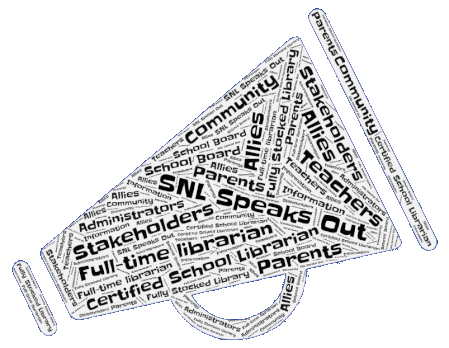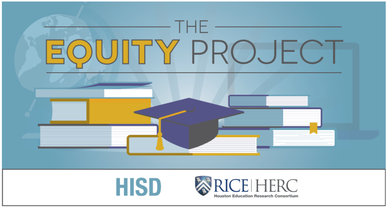|
by Debbie Hall Currently a Rice group (HERC) is focused on improving outcomes and providing equitable educational opportunities for students in the Houston area and beyond. According to the HISD website:
“The purpose of the Equity Project, conducted in collaboration with partners at the Houston Education Research Consortium (HERC), is to identify the mechanisms through which HISD and the broader Houston community can work to improve equity and ultimately eliminate gaps in achievement and attainment. Information from these studies will help guide district decision-making to improve equity for all HISD students.” If you would like to know more about this research or would like to comment, please follow this link (https://www.houstonisd.org/equityproject) which describes the Equity Project in more detail. One interesting feature of the website is a searchable Needs Map which reveals specific data about school communities like food insecurity, employment, and safety. We ultimately would like to see school libraries in all schools as a recommendation from this project. We keep asking why would libraries be viewed as necessary in some schools but not others. We do see the problem of a lack of library service as being more prevalent in less affluent areas of the district. The following content is what we shared in March with the HERC/HISD project leadership regarding equity: Members of SNL have long been concerned about the growing inequity in Houston schools. There are most definitely haves and have-nots and areas of poverty where needed resources are lacking. Your[HERC] wraparound services assessment clearly speaks to those needs. We speak specifically to the need for library services in all HISD schools and work to broaden awareness of the importance of libraries in schools. Significant research has proven over the years that libraries impact student achievement. You may wish to refer to these two articles from 2018 as more recent examples:
We work with other school library advocacy groups in the US and in other countries. Many members of our group in Houston have worked in HISD schools as volunteers or teachers or librarians. Many of us have had children in Houston schools and thus have first-hand experience with libraries across the district. We advocate for school libraries because we believe that all students need access to a library to learn and grow. We have seen in the last 70 years the rise and fall of school libraries in HISD. In the 1950s, the first district library supervisor, Elenora Alexander, created a plan for providing a school library on all campuses. At that time only secondary schools offered a library for their students. By the late 1960s, her goal was reached with almost all campuses offering library services. All libraries were staffed and had a centralized budget to provide needed library materials for most of these years. This was the norm for over 25 years until the state instituted the site- based decision-making policy in 1992. HISD had no local policy to protect students' rights to access to a school library, therefore principals and SBDM committees were freed to use the money that had supported staffing and library books in other ways. At the same time, schools across the state began to see less financial support from the state legislatures. The STAAR test instituted in 2007 added to the financial deficits of schools as schools used limited resources to pay tutors and provide test prep materials for this high-stakes test. All the above has contributed to the loss of library services across the district. Every fall, we look at the district library directory to see if we have lost or gained library staffing in HISD schools. While the decline in school libraries across HISD has been happening for much longer, we have been monitoring in detail a steady decline in services for the past three years. Our Library Staffing Overview web page provides the data. We see disturbing trends in HISD. Less than 50% of high schools provide access to libraries. The number of libraries listed as vacancies or No Library increases each year. The number of libraries staffed by certified librarians is shrinking. Teachers and clerks are placed in charge of libraries on many campuses. Small charter/magnet schools are often created without a library. New schools are being built without a library, sometimes replacing a school that formerly had a library. We see schools that have closed their libraries and allowed the books to gather dust while other schools have repurposed the library space and dispersed the books, moved them to classrooms, or disposed of them. HISD has lost sight of the importance of school libraries. Neighboring school districts like Alief, Fort Bend, Aldine, and Katy have continued to provide library services to their students. Why is HISD unable to maintain access to the resources a library provides when other neighboring school districts continue to ensure access? Doing away with libraries is the antithesis of a college- bound culture and impacts students in areas without bookstores and access to broad-band networks more severely than more affluent populations. We believe in a library open for students' use is essential to their success. This is where students follow their own learning plan and begin the process of learning to do research and use various technologies. This is where students can dream, explore, and learn about the world. And, as the Pennsylvania Study and numerous other studies have illustrated, students with access to school libraries have stronger test scores. The Pennsylvania study specifically addresses the benefits of school libraries to students who are Economically Disadvantaged, Black, Hispanic, and have IEPs (i.e., students with disabilities). The study findings demonstrate that these students benefit proportionally more than students generally when their schools have full-time librarians. We know that you are collecting data in order to create more opportunities for the children of our city and we applaud that effort. Perhaps we can help you. We hope you are considering libraries as part of the solution when looking at equity and opportunity. It is one of the keys to unlock the equity issue. It remains important that the HISD community speaks out about the need for equitable school libraries across the district, and especially to raise the issue in the superintendent search process and as the new superintendent begins to work with HISD schools. Our HISD principals need to learn that money spent for libraries and librarians is a cost-effective support of literacy efforts for all students and classrooms.
0 Comments
Your comment will be posted after it is approved.
Leave a Reply. |
AuthorThis blog is primarily authored by Debbie Hall and Dorcas Hand, but guest authors are welcome. If you have an idea to share, please contact our email below. Debbie is a retired HISD librarian and Library Services Specialist. Dorcas is a retired school librarian who remains active in AASL/ALA. Both support increased equity in school library access and support for all HISD students and campuses. Archives
November 2023
CategoriesClick to our Facebook page.
|

